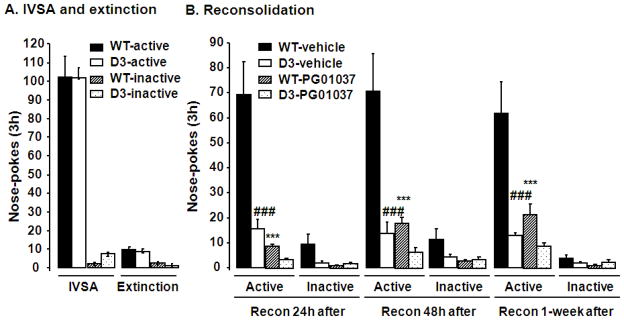Fig. 5.

Effects of the D3 receptor antagonist PG01037 on reconsolidation of cocaine self-administration. Wild-type and D3 receptor mutant mice were subjected to daily IVSA training and showed stable acquisition (A). Once the extinction criterion was met following daily extinction training (A), mice were subjected to a memory retrieval for 6–10 min. Reconsolidation was tested 24 h, 48 h or 1 week after the retrieval (B). PG01037 (30 mg/kg) or its vehicle was administered i.p. immediately after the retrieval. N = 8–13 for each group. Data represent mean ± SEM. ***P<0.001 PG01037 versus vehicle treatment in wild-type mice. ###P<0.001 D3 receptor mutant versus wild-type mice with vehicle treatment. Recon: reconsolidation. Pharmacological blockade of D1 or D3 receptors disrupts reconsolidation of cocaine memory Genetic mutations in D3 receptors attenuate reconsolidation of cocaine-induced reward memory Dopamine D1 and D3 receptors may serve as new targets for combating cocaine abuse
